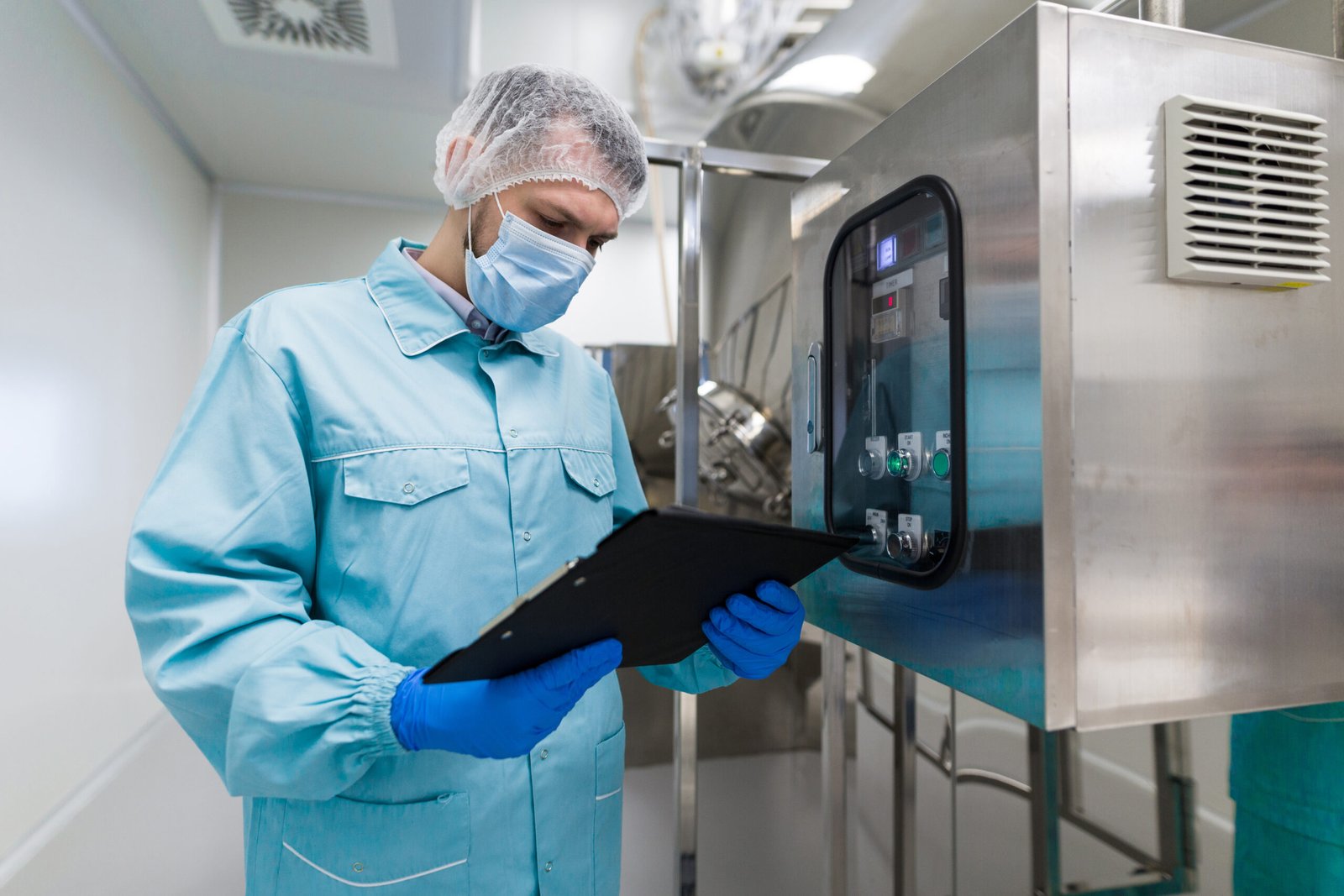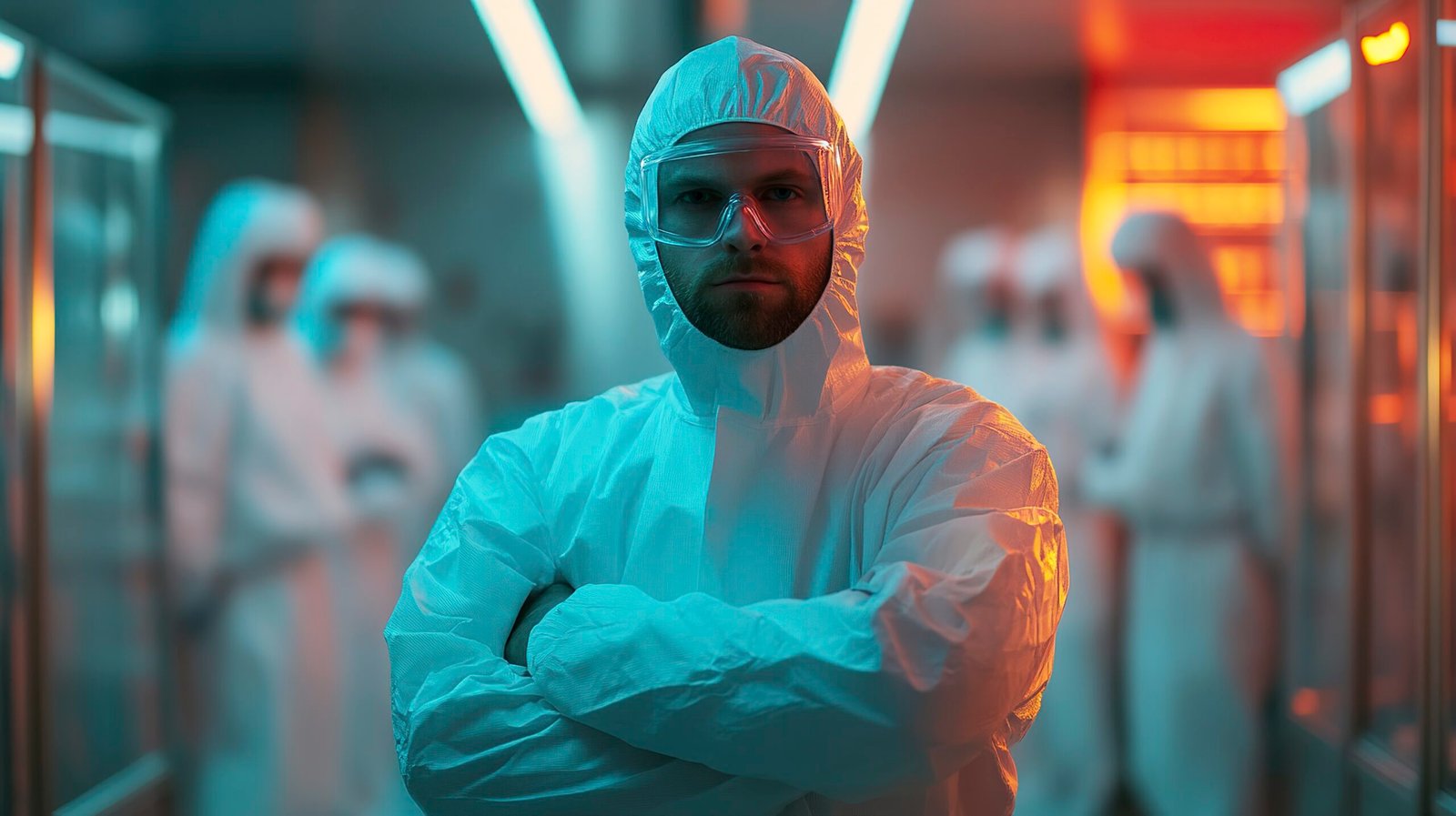In today’s world, where innovation meets precision, cleanroom play a critical role in maintaining product quality and protecting processes from contamination. From pharmaceuticals to microelectronics, these controlled environments are the unsung heroes of modern manufacturing. But what really happens inside a cleanroom? Who ensures its purity? And why is it so crucial across industries?
Welcome to the invisible world of cleanroom operations ,where purity isn’t just a standard, it is a mission.
👨🔬What is a Cleanroom?
It is a highly controlled environment where contaminants such as dust, airborne microbes, aerosol particles, and chemical vapours are minimized. These rooms are engineered to maintain extremely low levels of pollutants using advanced air filtration systems, pressurization, temperature control, and humidity regulation.
📊 Cleanliness Levels
Measured by the number of particles per cubic meter, It classified by international standards like ISO 14644, ranging from ISO Class 1 (ultra-clean) to ISO Class 9 (least strict).
🏭 Industries
💊 Pharmaceuticals & Biotechnology – For sterile drug manufacturing
💻 Semiconductor & Electronics – To prevent dust from damaging microchips
🚀 Aerospace – For contaminant free component assembly
🏥 Medical Devices – For sterile surgical tools and implants
🍽️ Food & Beverage – To ensure hygiene in processing and packaging
Each industry relies on the services to meet regulatory standards and maintain trust.
🛡️ Who Are the Guardians of Purity?
Inside every cleanroom, a specialized team ensures strict cleanliness,
👨🔧 Cleanroom Technicians
Operate machinery, assemble components, and follow sterile practices in “bunny suits.”
🔬 Environmental Monitoring Teams
Use tools like particle counters and humidity sensors to maintain standards
🧽 Cleaning & Maintenance Crews
Follow specific protocols using lint-free cloths and HEPA-filtered equipment.
These trained professionals are the unsung heroes who protect purity at every level.
🏗️ Cleanroom Design: Engineering Purity
Design is the foundation,
🌬️ HEPA/ULPA Filters – Trap microscopic particles
↕️ Laminar Air Flow – Maintains unidirectional airflow
➕ Positive Pressure – Prevents external contamination
🧱 Non-porous Surfaces – Reduce particle retention
🚪 Airlocks & Gowning Rooms – Create contamination barriers
Cleanroom Classifications and Standards
Cleanrooms are classified based on particle concentration,
| 🔢 ISO Class | Max Particles (≥0.5 μm) per m³ |
|---|---|
| ISO 1 | 10 |
| ISO 5 | 3,520 |
| ISO 7 | 352,000 |
| ISO 9 | 35,200,000 |
💡 Why Cleanroom Services Matter
Cleanroom services protect products, processes, and people.
✅ In Pharma: Prevents microbial contamination in medicine
✅ In Electronics: Protects circuits from failure due to dust
✅ In Aerospace: Ensures mission critical reliability
In every case, It is the silent enabler of innovation and safety.
⚠️ Challenges
Running a cleanroom isn’t simple,
📚 Continuous Training
🧭 Strict Compliance
💰 High Operational Costs
🕵️ Regular Internal & External Audits
🔮 The Future
Technology is transforming,
🤖 AI-Based Monitoring Systems
🧱 Modular Construction
🌱 Energy-Efficient HVAC Designs
📡 Real-time Data Dashboard
🧠 Conclusion
The next time you use a vaccine, smartphone, or GPS, remember, behind it .These specialized environments and the people who maintain them ensure the safety, reliability, and success of everything from medicine to microchips.
At the heart of this ecosystem are the Guardians of Purity the technicians, engineers, and professionals who ensure that contamination never gets in the way of innovation.




